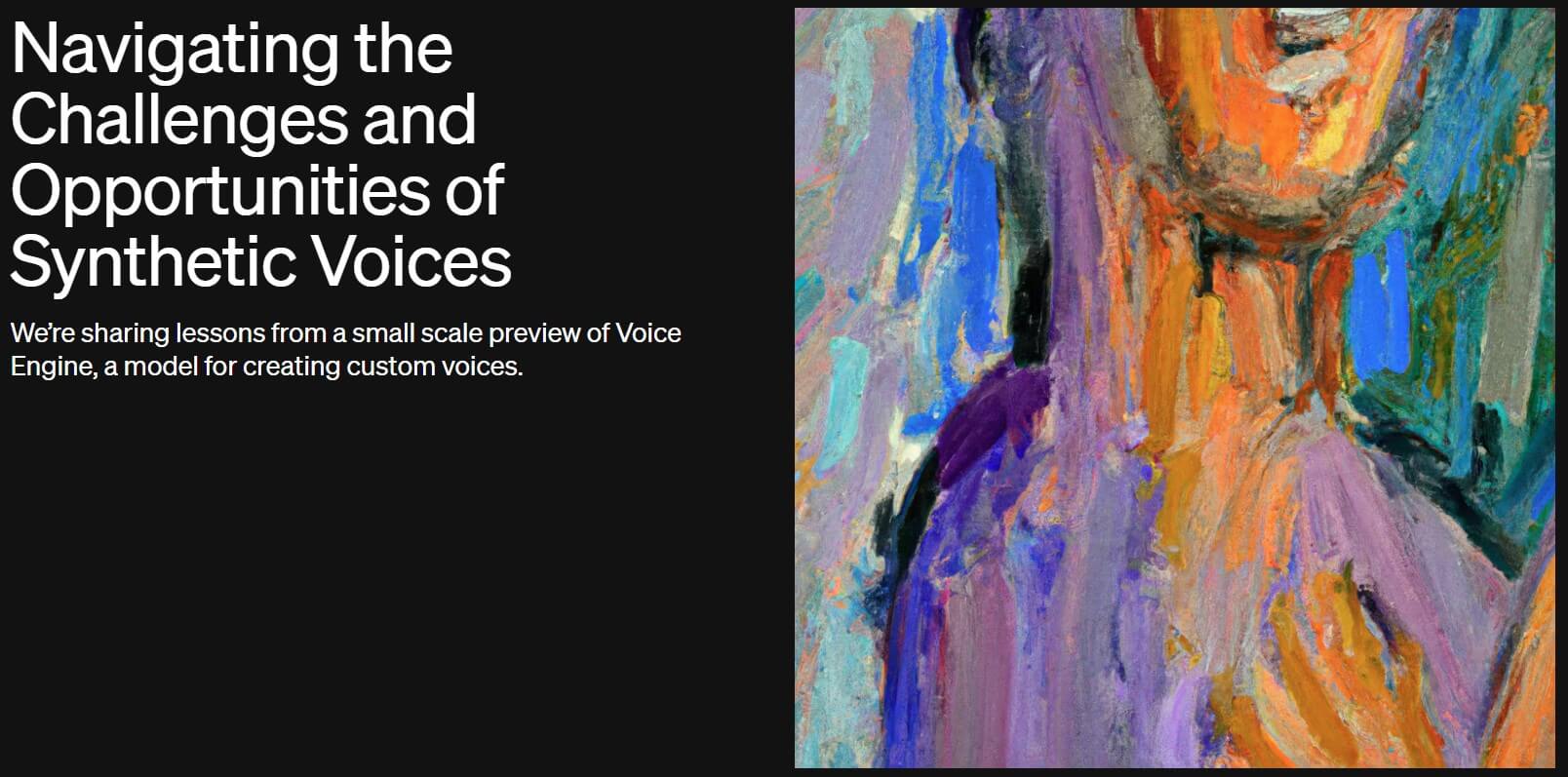Analyses
OpenAI develops an app that perfectly imitates anyone’s voice

Because of the potential risks, the company has so far only allowed testing of the system in a limited number of strictly controlled circumstances and has not yet begun wider roll-out. The main risk is that people could use the voice generator for dubious purposes: to scam people, to imitate the voices of famous people or politicians without their consent, contributing to the not inconsiderable damage caused by the increasingly lifelike deep fakes.

With the ChatGPT chatbot and the Sora video generator, OpenAI has already shown the extraordinary possibilities that artificial intelligence offers users: with ChatGPT, a disembodied assistant answers all your questions and solves many tasks for you, in a very “human” way, and the video generator creates almost movie-like short films on any topic, in a realistic style, after a few words. For OpenAI, the most important aspect of the development is to test and show what artificial intelligence can do, where the limits of the technology are and how to push these limits as far as possible.

This is the purpose of their latest app, Voice Engine, a voice generator that synthesises anyone’s voice into a sound very similar to the original, based on the samples presented. The realistic effect is mostly due to the speech style, which is strikingly well intoned and mimics emotions well, meaning the AI-generated sounds feel less artificial. Voice cloning technology can therefore produce real clones, rather than drab and monotonous artificial speech.



